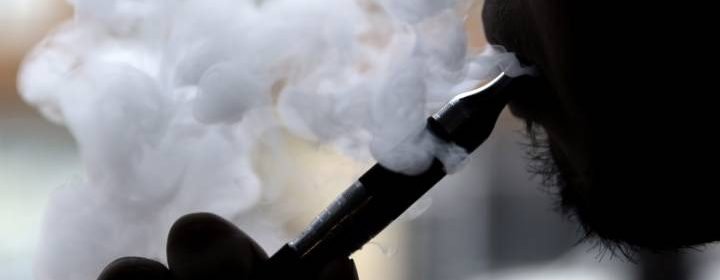B.C. health minister promises crackdown on youth vaping after calls for Canada to act

B.C.’s health minister says the province is willing to act if the federal government delays implementing strict new measures to curb the dramatic rise in vaping among teenagers.
Adrian Dix said on Friday that the province has recommended Ottawa take a number of regulatory actions, including restricting nicotine concentration while cracking down on sales and advertising of vaping products, particularly as it pertains to youth.
But he added on Thursday that B.C. will introduce its own initiatives along similar lines to stop the rising trend if federal action takes too long to come into effect.
“We have to work to make sure we curtail the use of vaping because we want to keep people healthy in our society,” Dix said, adding he would prefer to take those actions in partnership with the federal government and other jurisdictions.
Dix’s comments came in the wake of new research that suggests vaping among young Canadians skyrocketed 74 per cent in just one year.
The study, spearheaded by University of Waterloo professor David Hammond, found the number of Canadians aged 16 to 19 who reported vaping in the previous month jumped from 8.4 per cent in 2017 to 14.6 per cent in 2018.
Rates of weekly use climbed to 9.3 per cent from 5.2 per cent over the same time period.
In May 2018, Ottawa formally legalized vaping, opening the door for international vaping brands — some backed by big tobacco companies — to enter the Canadian market.
Weeks after becoming available in Canada, some of these vaping brands ranked among the most popular with teens, along with similar high-nicotine products, said Hammond. In the U.S., researchers found parallels between the rise of these brands and a surge in youth vaping, he said.
The study also indicated that conventional cigarette use increased from 10.7 per cent in 2017 to 15.5 per cent the following year, deviating from decades of research suggesting youth smoking in Canada was on the decline, Hammond said.
The study was released Thursday by the Canadian Cancer Society, whose senior policy analyst, Rob Cunningham, said federal and provincial governments must take immediate action to level the scales.
“That is an alarming jump,” he said. “Clearly, the current situation is not working. Therefore, we need to move quickly.”
Cunningham is urging provinces to follow many states in the U.S. and raise the minimum age to purchase tobacco and e-cigarettes to 21.
But Dix said he has no plans to introduce that idea and said the solution lies in more education, including from teens themselves. He said work is underway to establish youth-led education efforts across the province.
“It’s one thing to have their parents or the government or someone else give the message, but it’s another thing if they hear it from their own peers,” he said.
Dix said that same idea helped drive down addiction rates in the 1990s, enough to make B.C. the province with the lowest smoking rate across Canada for 15 years.
“We’re seeing that edge up now, and that’s a concern that we have to take action on,” he said.
B.C.’s recommendations to Ottawa came during federal consultations on the issue held in March and May, which also saw the province sign off on six other measures included in the consultation paper.
Those measures mainly target online retailers and include requiring two-step age verification, signatures upon delivery and strict language on websites and packaging warning of those requirements.
Federal legislation allows for some advertising of vaping products, but promotions targeted at youth are prohibited.
In February, Health Canada proposed new measures to bar these advertisements from venues where young people are likely to be exposed to them, including public places, retail stores and youth-oriented media. It also launched a multi-phase campaign to educate teens about the risks associated with vaping at a young age.
A spokesperson for Health Canada could not immediately be reached for comment.
Cunningham said Ottawa needs to tighten up advertising rules for vaping products to make them at least as restrictive as those for cannabis.
He also urged federal lawmakers to strengthen regulations on the use of flavoured vaping products and said provinces should ban their sale except in adult-only specialty stores.
“We have made such incredible progress to reduce youth smoking and now we have a situation whereby a new generation of teenagers are becoming addicted to vaping products,” he said. “We cannot stand still and allow that to happen.”
—With files from Global News’ Jordan Armstrong and the Canadian Press
Sign up for our Health IQ newsletter
© 2019 Global News, a division of Corus Entertainment Inc.
Source: Read Full Article


